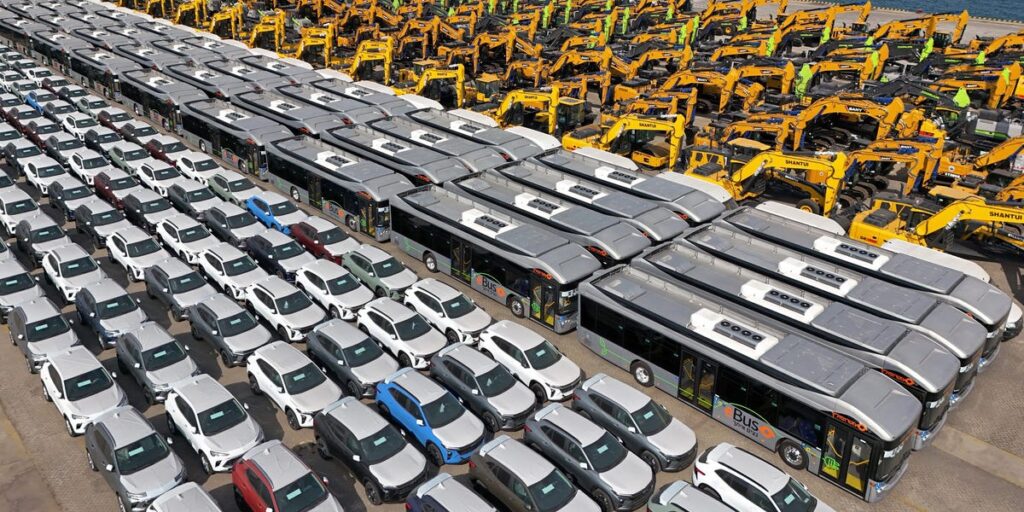The European Union said General Motors and Volkswagen’s Chinese partner, state-owned SAIC Motor, had not cooperated with EU authorities and had not submitted required documentation.
Last week, the company had an additional 36.3% tariff slapped on its vehicles after the EU accused it of benefiting from “unfair subsidies” and hurting competition in Europe. SAIC also makes cars under the MG brand.
That’s a revision from higher 37.6% tariffs that were challenged by Chinese EV makers after they were imposed in June. The additional tariffs are on top of the existing 10% tariffs that apply to all EVs imported from China.
Compared with SAIC, China’s largest electric vehicle maker, BYD, and Volvo’s parent company, Geely Automobile, faced much lower tariffs. BYD, which briefly overtook Tesla to become the world’s best-selling electric vehicle maker earlier this year, faced a 17% tariff, while Geely Automobile faced a 19.3% tariff. Both automakers revised their tariffs downward slightly last week.
Tesla also manufactures cars in China, but was hit with a 9% tariff because it doesn’t benefit from Chinese subsidies.
The very stiff tariffs imposed on SAIC stem from the company’s failure to cooperate with authorities in Brussels. In a July report, the EU Commission found that SAIC’s responses to a questionnaire were “highly insufficient” and lacked crucial information, including production costs, information on the purchase of key raw materials, and associated companies.
SAIC argued that the EU was demanding too much information.
The company also faced internal challenges in responding to the EU.
The electric vehicle maker didn’t have access to data on some of its suppliers and wasn’t familiar with required documentation, Bloomberg reported on Monday, citing people familiar with the company.
Representatives for SAIC did not immediately respond to Business Insider’s request for comment.
The EU tariffs are a major headache for Chinese EV makers, who already face 100% import tariffs in the United States.
Europe is a key market for Chinese companies: Chinese automakers’ share of the European EV market could rise to 10.5% by 2030 from just over 6% in 2023, with almost half of their sales likely to come from countries outside the EU, HSBC wrote in an August report.
The tariffs are part of a long-running diplomatic battle between the EU and China over trade, national security and overcapacity.
The EU accuses China of encouraging overcapacity in a range of industries, including green industries, and fuelling Russia’s war against Ukraine. China claims the EU is protectionist and trying to stifle its economic development.



